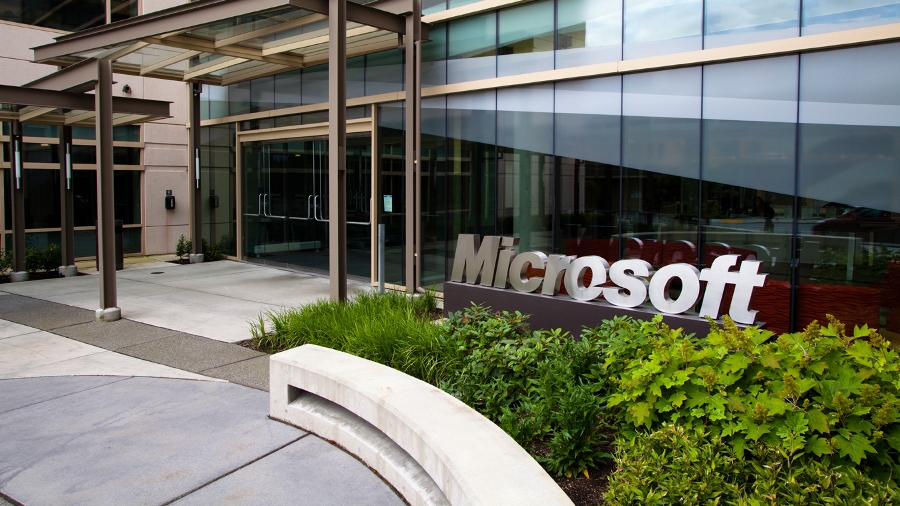Nokia purchase can give Microsoft the edge over Samsung
Redmond firm relevant again

The $7.2 billion deal that allowed Microsoft to purchase Nokia's smartphone division has gone through, giving a new lease of life to the ailing giant, at least in terms of hardware. Having missed out on the smartphone race, and subsequently the tablet race, Microsoft is not in a good position when it comes to mobile.
Apple and Google are both making billions of dollars in revenue from mobile devices and services, with Apple generating $45 billion in the second quarter of 2014 selling 47 million iPhones and Google monetising mobile search results and making money from app sales in Google Play.
Microsoft, in contrast, is struggling. Whilst the firm's financial situation is secure for now, the majority of their revenue is generated through PCs, Office (the presence of which is lacking on mobile devices) and enterprise software sales, which are intrinsically linked to Office.
Right now this is a stable source of revenue, but in a "Post-PC" world — a term coined by Steve Jobs — it is simply unsustainable. It would not be pessimistic to predict the demise of Microsoft within the next two decades as business and consumers shift away from desktops to handheld devices.
New stewardship for new era
Fortunately, Microsoft now has a new steward in Satya Nadella who has vowed to focus on mobile in a way that Steve Ballmer, the outgoing CEO, simply did not. Microsoft was too early to the smartphone race and then failed to realise the velocity of the shift in attitudes the iPhone would create.
Steve Ballmer famously laughed at the iPhone for being too expensive and lacking a keyboard, a view which is preposterous now when most businesses give out work iPhones.
In Nokia, Microsoft has found a hardware manufacturer that has already got a road map of products for Windows Phone after their partnership back in 2010 when Nokia agreed to exclusively produce Windows Phone devices. The product of this was the Lumia brand, which has been steadily growing over the past few years, especially in emerging markets such as India and South America.
Are you a pro? Subscribe to our newsletter
Sign up to the TechRadar Pro newsletter to get all the top news, opinion, features and guidance your business needs to succeed!
Nokia devices are nicely designed, well made and pair nicely with Windows Phone. Unfortunately for Nokia, they were running out of cash due, in part, to the same reasons as Microsoft: they missed the boat on mobile.
Symbian, Nokia's mobile OS offering up until very recently, simply did not have the features or app support of Android or iOS which, coupled with poor hardware, did not bode well. It has been speculated that Nokia would have gone out of business long ago if it were not for the cash given by Microsoft in exchange for the Windows Phone exclusivity deal.
The next move
So what can Microsoft do with Nokia? The answer is anything they like, which is a good thing. Nokia will have a road map of future products, just as all the giant companies do, which gives Microsoft a runway to launch from.
Microsoft have billions of dollars in the bank and a massive cash flow which can bankroll the pushing of Lumia devices to consumers through advertising then hopefully creating the sacred word-of-mouth marketing that sells iPhones and Samsung Galaxies by the million.
Nokia's design know-how could also be integrated into Microsoft's design ideas for their current hardware (and software, potentially). The Surface tablets are nicely designed but lack the flair of the Lumia phone range or Lumia 2520 tablet, which should no longer be a problem.
Windows Phone as a platform is maturing, and the deal can only improve the integration of hardware and software that customers seem to love in Apple devices. Specific software features could be tailored to the phone's hardware, just as Apple does with Touch ID on the iPhone 5S.
Ready to catch Samsung
Features like this can provide a multitude of unique selling points for Microsoft to tout, giving them a genuine edge over Samsung devices whose software is created by Google. Microsoft could integrate a finger print reader or various other biometric sensors into future Lumia devices meaning they can compete with Apple if they move into fitness, as rumours from Cupertino are suggesting.
Even more specifically, Microsoft could leverage the hardware capabilities that they have just acquired to make a wearable device, such as a 'smart watch' or another wearable device.
Just as Google has Android Wear for wearable devices, Microsoft could create a version of Windows Phone that would work on a wearable device. The 'Modern UI' aesthetic could easily be paired down to suit a smaller, wrist-mounted display with an iPod Nano-style interface displaying a Live Tile per home screen.
All of this is possible now that Microsoft has acquired a hardware manufacturer, and it means that Microsoft has accelerated back into relevancy.
Max Slater-Robins has been writing about technology for nearly a decade at various outlets, covering the rise of the technology giants, trends in enterprise and SaaS companies, and much more besides. Originally from Suffolk, he currently lives in London and likes a good night out and walks in the countryside.